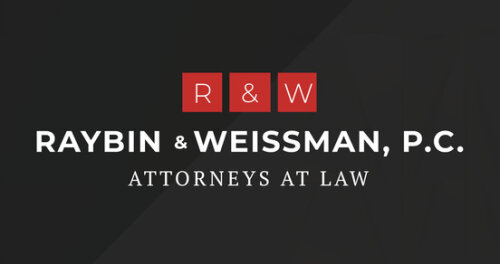Best Ethics and Professional Responsibility Lawyers in Nashville
Share your needs with us, get contacted by law firms.
Free. Takes 2 min.
List of the best lawyers in Nashville, United States
About Ethics and Professional Responsibility Law in Nashville, United States
Ethics and professional responsibility in the legal profession govern how lawyers must behave when representing clients, dealing with courts, interacting with opposing parties, and supervising staff. In Nashville, as elsewhere in Tennessee, these rules are enforced to protect clients, preserve public confidence in the legal system, and ensure fair administration of justice. The framework is set by state rules of professional conduct, court oversight, and a disciplinary system that receives and investigates complaints against attorneys.
Although many ethical principles are national in character, Nashville practitioners and clients must follow Tennessee-specific rules and procedures, and any disciplinary matters are handled under the supervision of the Tennessee Supreme Court and its regulatory bodies.
Why You May Need a Lawyer
People seek lawyers for ethics and professional responsibility matters for several reasons. Common situations include:
- You believe your attorney mishandled your case, misused your funds, or breached confidentiality and you want to file a complaint or pursue a malpractice claim.
- You are an attorney who has received a disciplinary inquiry, complaint, or summons and need representation to respond, negotiate, or defend at a hearing.
- You are a corporate client or public official facing questions about conflicts of interest, outside employment, gifts, or disclosure obligations.
- You need an ethics opinion about permissible conduct in a novel or risky situation, such as a potential conflict, joint representation, or use of new technology that affects confidentiality.
- You are involved in a fee dispute, trust-account issue, or client protection fund claim and need help resolving or negotiating the matter.
Local Laws Overview
Tennessee sets professional conduct rules that apply to lawyers practicing in Nashville. The key local aspects to know include:
- Rules of Professional Conduct - These govern client confidentiality, conflicts of interest, competence, diligence, communication, candor to the tribunal, and duties to preserve client property. They shape everyday practice and form the core of disciplinary standards.
- Disciplinary System - Complaints about lawyer misconduct are handled under the supervision of the Tennessee Supreme Court through a Board or Office that receives, investigates, and prosecutes allegations. Possible outcomes range from dismissal and private admonition to public discipline and disbarment.
- Trust Account and Client Funds Rules - Lawyers must safeguard client money, keep accurate records, and follow rules requiring separate trust accounts and periodic recordkeeping. Misuse of client funds is a frequent and serious grounds for discipline.
- Fee Agreements and Fee Dispute Procedures - Written fee agreements are strongly advised. There are procedures for resolving disputes over fees, including arbitration or administrative review in some cases.
- Mandatory Continuing Legal Education and Supervision - Attorneys must meet continuing education and supervision obligations. There are rules governing the supervision of nonlawyer staff and of junior lawyers.
- Reporting Obligations - Attorneys often have a duty to report certain types of misconduct they know about by another lawyer. There are also duties to the court to disclose material facts and to avoid frivolous claims.
- Advertising and Solicitation Limits - Local rules regulate lawyer advertising, client solicitation, and the use of testimonials and online profiles to prevent misleading statements.
Frequently Asked Questions
What counts as lawyer misconduct in Nashville?
Misconduct includes violating the rules of professional conduct such as misappropriating client funds, serious breaches of client confidentiality, conflicts of interest that are not properly managed, dishonesty to a client or court, failure to communicate or to competently handle a matter, and criminal convictions that affect fitness to practice.
How do I file a complaint against a lawyer in Tennessee?
You can file a complaint with the state disciplinary authority that handles attorney discipline under the Tennessee Supreme Court. Complaints should describe the facts, include supporting documents, and identify the lawyer. The disciplinary office will decide whether to investigate further. It is helpful to keep copies of all correspondence and records related to the issue.
If I file a complaint, will I get my money back?
Filing a disciplinary complaint is a separate process from recovering money. Discipline can result in sanctions, but recovery of funds or damages usually requires a civil lawsuit for breach of contract or malpractice, or a claim to a client protection fund where available. A lawyer who handles discipline matters can advise on the best route to seek financial recovery.
What should I do if I receive a disciplinary notice as an attorney?
Do not ignore the notice. Preserve all relevant files and communications, contact counsel experienced in attorney discipline, and respond within any deadlines. Avoid actions that could appear obstructive and be careful about communications that may waive privileges or worsen the situation.
Can I sue my lawyer for malpractice instead of filing an ethics complaint?
Yes. An ethics complaint and a malpractice lawsuit are different remedies. An ethics complaint seeks disciplinary action and protects the public interest, while a malpractice claim seeks compensation for harm. Sometimes both paths may be pursued but consult an attorney to determine timing and the best strategy.
Are ethics opinions binding in Tennessee?
Formal ethics opinions provide guidance but are not necessarily binding like a court order or disciplinary ruling. They are influential and can be relied on as evidence of accepted practice. If an issue is novel or high risk, consider seeking a written opinion from a recognized ethics body or private counsel.
What happens during a disciplinary investigation?
An investigation typically involves gathering documents, interviewing witnesses, and asking for the lawyer s response. The disciplinary authority may dismiss the complaint, issue a private admonition, negotiate a public discipline agreement, or file formal charges that lead to a hearing and potential sanctions. The process may take months to resolve.
Does attorney-client privilege protect communications in an ethics investigation?
Attorney-client privilege remains important, but it has limits. Communications that further a future crime or fraud are not protected. Also, disciplinary authorities may require production of certain records, and privilege may be contested. Consult counsel before producing materials to avoid unintended waiver of privilege.
Will a discipline record be public?
Some disciplinary outcomes are public, especially formal sanctions such as suspension or disbarment. Lesser dispositions may be private depending on the rules and negotiated resolutions. Public records can affect reputation, employment, and licensure, so prompt and strategic handling is important.
How can I find an attorney who handles ethics or disciplinary matters in Nashville?
Look for lawyers who list professional responsibility, legal ethics, or disciplinary defense among their practice areas. Ask for references, review their track record in disciplinary proceedings, and confirm they are currently in good standing. A consultation will help determine fit and strategy.
Additional Resources
For local guidance and assistance consider these governmental bodies and organizations in Tennessee and Nashville that deal with legal ethics and professional responsibility:
- Board or Office charged with lawyer discipline under the Tennessee Supreme Court - receives complaints and manages investigations and prosecutions.
- Tennessee Supreme Court - adopts and oversees the rules of professional conduct and disciplinary processes.
- Tennessee Bar Association - offers ethics guidance, continuing legal education, and may publish ethics opinions and practice resources.
- Nashville Bar Association - local resources, mentorship, and ethics programming tailored to Metro Nashville attorneys and the public.
- Lawyers protection funds and client restitution programs in Tennessee - provide potential recovery paths when client funds are misappropriated.
- American Bar Association Center for Professional Responsibility - national materials and model rules that help interpret state obligations.
Contact these organizations to verify current procedures, to obtain published ethics opinions, or to find a list of lawyers who specialize in disciplinary defense and ethics counseling.
Next Steps
If you need legal assistance with an ethics or professional responsibility matter in Nashville, consider the following steps:
- Preserve records - gather and secure emails, engagement letters, trust-account records, billing statements, court filings, and any communications relevant to the issue.
- Assess your objective - are you seeking discipline against an attorney, financial recovery, advice about compliance, or defense against a complaint? The desired outcome will determine the best approach.
- Get specialized counsel - retain a lawyer experienced in legal ethics and disciplinary defense or a lawyer who represents clients in malpractice and fee disputes.
- Meet deadlines - disciplinary proceedings and civil claims can have strict timelines. Respond promptly to any notices and file complaints or claims within applicable time limits.
- Consider informal resolution - in many fee disputes or minor misunderstandings, negotiation, mediation, or arbitration can be faster and less risky than litigation or formal disciplinary processes.
- Use available guidance - seek ethics opinions or consult bar resources for preventative advice to reduce future risk.
If you are unsure how to proceed, a short consultation with an ethics attorney or a bar organization representative can clarify options and next steps tailored to your situation.
Lawzana helps you find the best lawyers and law firms in Nashville through a curated and pre-screened list of qualified legal professionals. Our platform offers rankings and detailed profiles of attorneys and law firms, allowing you to compare based on practice areas, including Ethics and Professional Responsibility, experience, and client feedback.
Each profile includes a description of the firm's areas of practice, client reviews, team members and partners, year of establishment, spoken languages, office locations, contact information, social media presence, and any published articles or resources. Most firms on our platform speak English and are experienced in both local and international legal matters.
Get a quote from top-rated law firms in Nashville, United States — quickly, securely, and without unnecessary hassle.
Disclaimer:
The information provided on this page is for general informational purposes only and does not constitute legal advice. While we strive to ensure the accuracy and relevance of the content, legal information may change over time, and interpretations of the law can vary. You should always consult with a qualified legal professional for advice specific to your situation.
We disclaim all liability for actions taken or not taken based on the content of this page. If you believe any information is incorrect or outdated, please contact us, and we will review and update it where appropriate.









